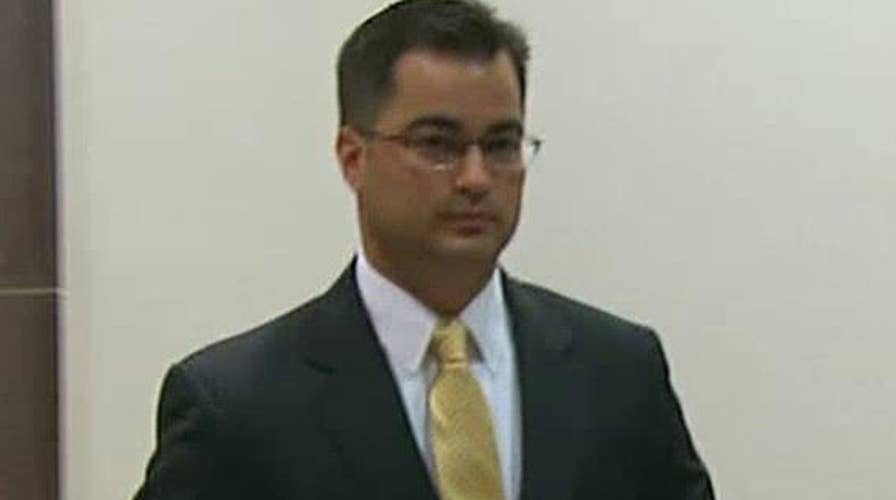Judge seeks details on Clinton aide's immunity agreement
Chief intelligence correspondent Catherine Herridge reports from Washington
Four central figures in the FBI’s criminal investigation of Hillary Clinton’s email practices are all using the same lawyer, a move described as a “red flag” by a former U.S. attorney who now runs a government watchdog group.
Lawyer Beth Wilkinson is representing: Clinton former chief of staff Cheryl Mills; policy adviser Jake Sullivan; media gatekeeper Philippe Reines; and former aide Heather Samuelson, who helped decide which Clinton emails were destroyed before turning over the remaining 30,000 records to the State Department.
"I think it would be a real red flag," Matthew Whitaker, executive director of the Foundation for Accountability and Civic Trust, or FACT, told Fox News, in reference to the legal defense. He suggested having a single lawyer would help the four Clinton aides align their stories for FBI interviews.
"The benefit is to have one lawyer’s brain have all the knowledge of the various pieces and parts, and so each of those potential targets or subjects of the investigation get to share information across that same attorney -- and quite frankly get their story to sync up and understand what other people know of the situation,” he said.
Wilkinson is a well-respected Washington, D.C., attorney who successfully argued in favor of the death penalty for Timothy McVeigh in the Oklahoma City bombing case. Wilkinson has deep ties in Washington and is married to former NBC “Meet the Press” host David Gregory, who is now a regular political commentator on CNN.
Asked for comment, there was no immediate response from Wilkinson's office. It has been their practice not to respond to press inquiries on this case.
Whitaker was appointed U.S. attorney for the Southern District of Iowa by President George W. Bush in June 2004 and held the position until November 2009, when President Obama's appointed replacement was confirmed. He said the legal set-up presents challenges for FBI investigators in the Clinton probe.
"All you're trying to do is seek the truth, and when someone is sharing a lawyer, you worry that the interview that you just did an hour ago with that attorney has been shared with the next witness and they can fix or reconcile their story to be the same," Whitaker explained.
While apparently unusual, the legal representation has not been openly challenged by Justice Department officials.
A different perspective, presented by a leading defense attorney who asked not to speak on the record, is that the four Clinton aides plan to present a united front and do not fear criminal liability.
Politico first reported in April on the legal representation; since then, Mills and Wilkinson blocked questions about Clinton IT specialist Bryan Pagliano – another key figure in the probe – during a civil suit deposition in Washington. Pagliano, who struck an immunity deal with the Justice Department last year, is now seeking to assert his Fifth Amendment right not to answer questions in the same Judicial Watch proceedings.
Clinton told ABC News on Sunday that her email practices were in line with those of her predecessors. In a Friday radio interview with KNX 1070, Clinton said there is “absolutely no possibility” she’d be indicted.
Whitaker's group FACT also is seeking the emails of Dennis Cheng, Clinton's former deputy chief of protocol at the State Department, whose records may reveal a great deal about the possible intersection between Clinton Foundation work and Clinton's time as secretary of state. Cheng was the point person for senior foreign government officials. Only a handful of Cheng emails were among the more than 30,000 pages made public by the State Department.
According to his State Department biography, Cheng also served as Clinton’s national finance director when she was a senator, her New York finance director for her 2008 presidential campaign, and as a consultant to the William J. Clinton Foundation.
The FBI probe into Clinton’s email use is not the first time her record-keeping has faced federal scrutiny. Long before she became a secretary of state, Clinton’s billing records and documents tied to her work as a partner in the Rose Law Firm on behalf of the Madison Guaranty Savings and Loan and Capital Management Services came under question. Those missing records from her work as a lawyer were at the crux of investigations by three separate federal agencies which cost taxpayers $65 million. A special committee’s report on the matter (page 155) said it received computer printouts of the billings in January 1996, “discovered under mysterious circumstances in the Book Room of the White House Residence.”
Clinton is still represented by the same lawyer who defended her throughout the in the 1980’s and 1990’s, David Kendall.













































